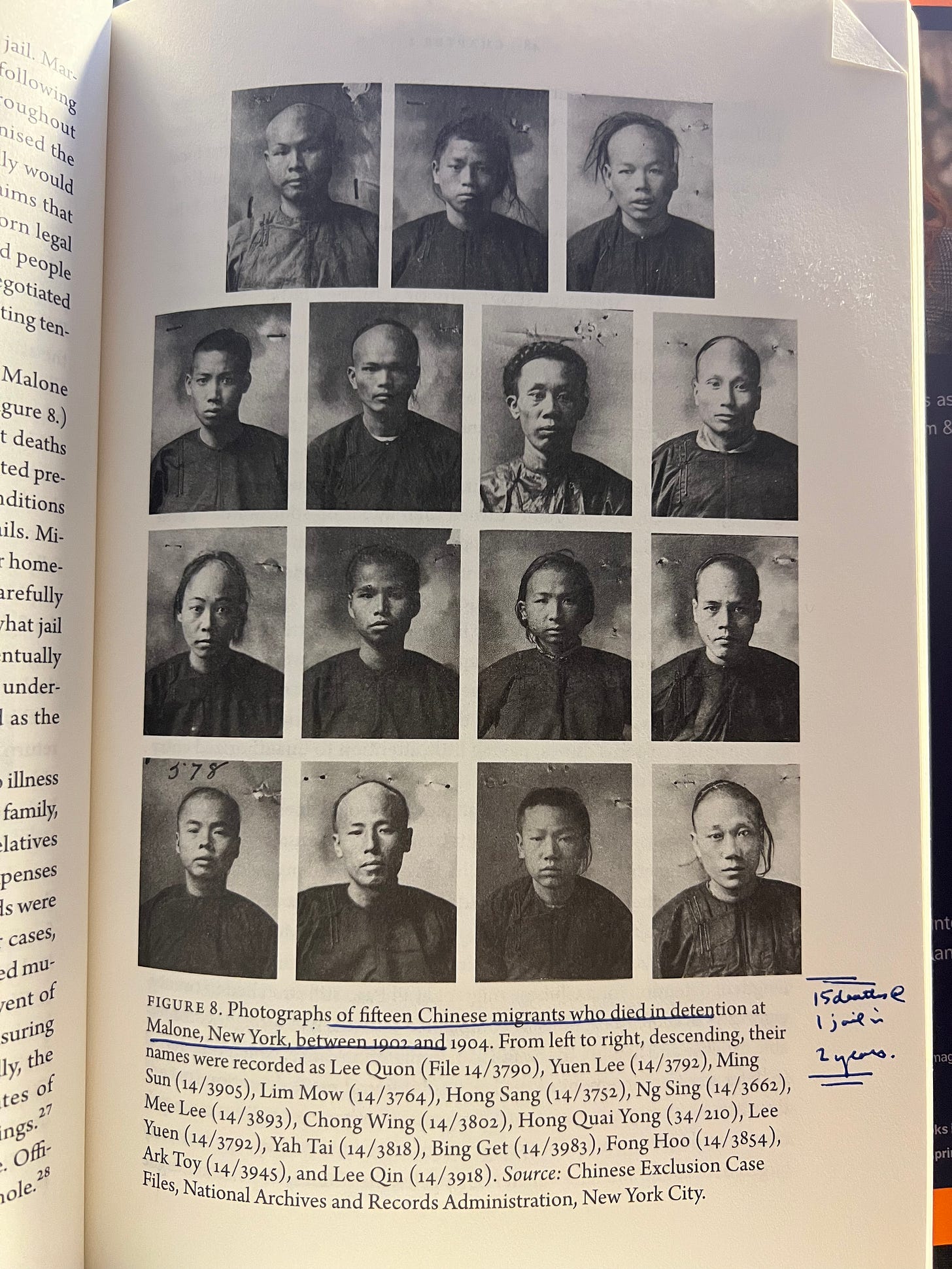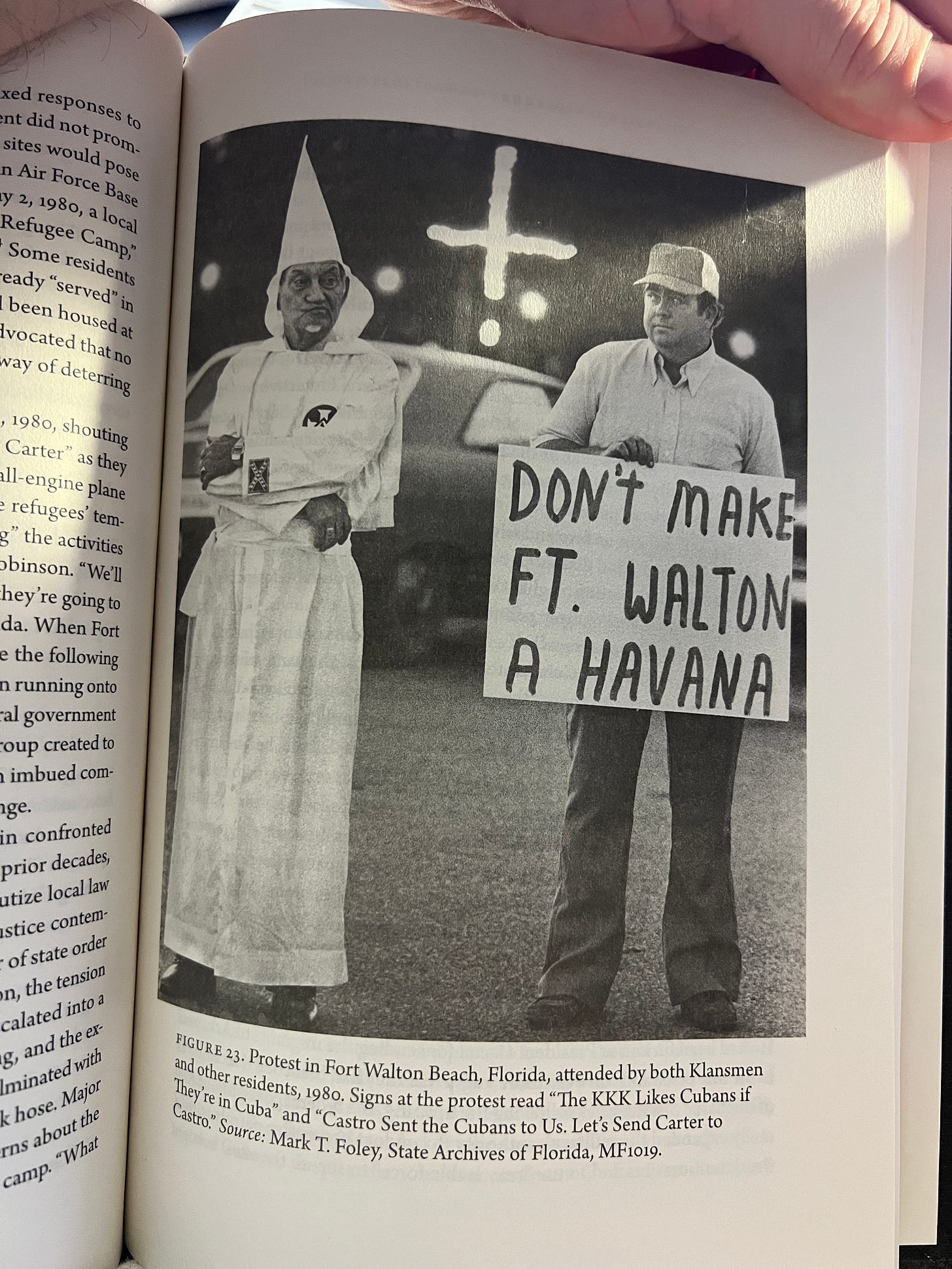Every so often, a work of scholarship comes along and fundamentally reshapes the landscape of what we thought we knew. For me a few of those works have been Migrating to Prison, which introduced me to the idea that the Attorney General of the United States once decided to end federal immigration detention, Inside Private Prisons, which exposed me to an online market for detention beds where jails and prisons get to bid on bodies like a modern-day auction block, and The Slave’s Cause, which lays out a rich and inspiring history of abolition and (partial) emancipation in the U.S. There are a TON of others that I feel guilty for not listing here. Perhaps I’ll do a reading list in a future toast that traces all of these.
The Migrant’s Jail is such a groundbreaking work that I’m writing a separate review of it. But today’s call is just an introductory conversation to whet the appetite and spark curiosity.
I’m including images from some of the passages that came up during our discussion below. I’d highly encourage anyone thinking about or working on immigration detention or mass incarceration issues to check out this conversation, and pick up the book. Well worth your time.
Some quick takeaways from my margin notes:
Immigration detention has NEVER been “civil”. People have always been locked away in county jails for profit.
There were likely thousands of unreported deaths in local custody of “federal prisoners.” In one North Country jail alone, 15 Chinese men died in the span of two years.
The push to build immigration detention for federal dollars boomeranged on communities who ran out of immigrant bodies to put into these beds, which led to criminalization and incarceration of community members—not just migrants.
The record here is so, so hard to acquire. That’s precisely because the federal government never bothered to retain these documents. Prof. Nofil’s historical sourcing work is really inspirational in that regard — particularly her frequent amplification of the first-person narratives people recorded through letters, art, legal pleadings, and other means while trapped in US migrant detention.
If you’d like to hear more competent interviewers speaking with Prof. Nofil, check out these links. You can take Professor Nofil up on her invitation to connect by visiting her website, www.briannanofil.com





















Share this post